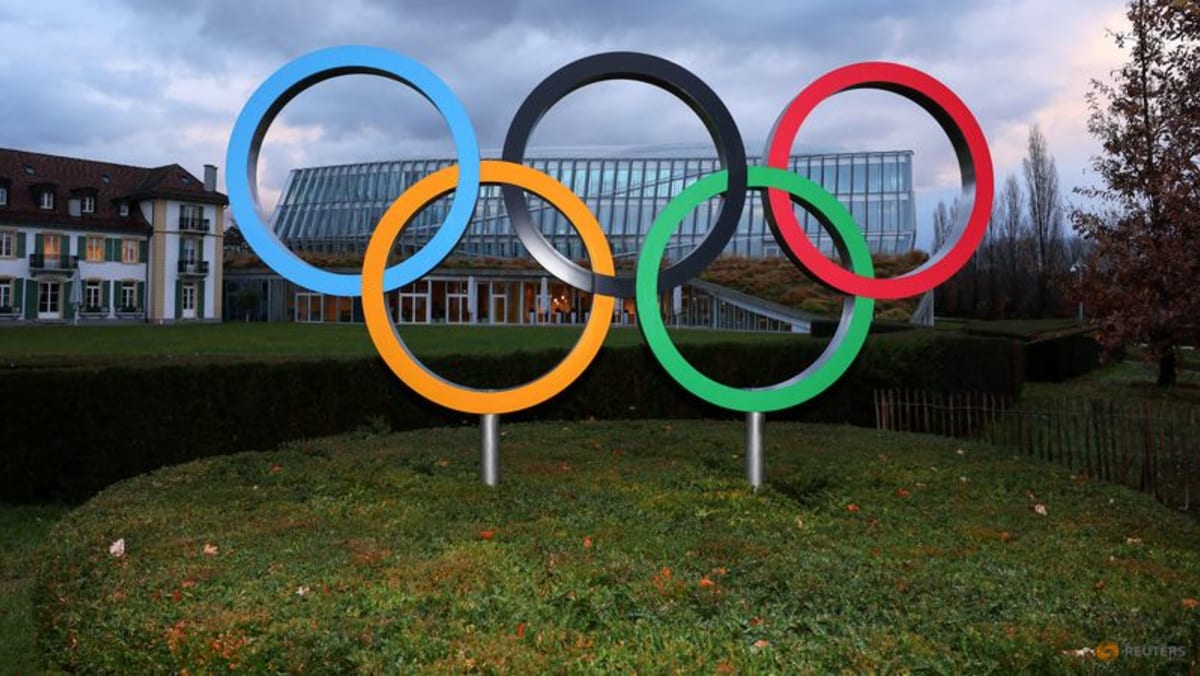BERLIN : The decision by President Donald Trump to exclude transgender girls and women from female sports has triggered what is likely to be a long, complex clash with global sports authorities as the United States counts down to the 2028 Los Angeles Olympics.
The order directs the Department of Justice to assure that U.S. government agencies – federal, state and local – enforce a ban on transgender girls and women from participating in female school sports under Trump’s interpretation of Title IX, a law against sex discrimination in education.
Trump also said he would not allow transgender athletes to compete the LA28 Olympics and urged the International Olympic Committee to “change everything to do with the Olympics and this absolutely ridiculous subject”.
His order may have earned praise among his supporters who say it will restore fairness in women’s sport, but there was no immediate outpouring of support from international organisations embroiled in the endlessly controversial battle for years.
Instead, the order is likely to reignite a debate involving the IOC and various international sporting federations over the issue as it relates to elite sport, while exposing the huge variation in regulations.
The IOC has staunchly refused to apply any universal rule for its Games. Instead, in 2021, it instructed international federations to each come up with their own rules for their sport. Some, including athletics, swimming and rugby, have done so, but many have yet to finalise any policy on the issue.
The IOC responded to Trump’s order with a neutral-sounding statement: “Working with the respective international sports federations, the IOC will continue to explain and discuss the various topics with the relevant authorities,” an IOC spokesperson said.
Many observers have been left exasperated by Trump’s order because it apparently conflates transgender competitors with athletes who have DSD, short for “differences of sexual development”.
DSD athletes have a combination of genes, hormones and reproductive organs that can include genitals that are not always aligned with the norm of their sex. In the case of women, it means their bodies naturally produce more testosterone, giving them a measurable physical advantage in development and performance.
PARIS CONTROVERSY
The IOC, which currently allows transgender athletes to compete in the Olympics, was at the heart of the gender controversy at the 2024 Games involving two DSD women boxers who both won gold medals.
Trump made a reference to one of them, Algerian Imane Khelif, in his speech after signing the order, calling her “a male boxer”.
“Who could forget last year’s Paris Olympics, where a male boxer stole the women’s gold medal after brutalising his female opponent so viciously that she had to forfeit after 46 seconds, and she was a championship fighter,” Trump said.
Khelif’s most controversial victory came against Italian Angela Carini, who gave up inside the first minute, saying she had never been hit so hard.
Khelif, who had always competed as a woman, was banned by the sport’s federation from the 2023 world championships after a sex chromosome test that the International Boxing Association said rendered them ineligible.
The IBA was later stripped of recognition over governance issues, leaving the IOC to run the sport in Paris. It then cleared Khelif to fight, saying she was born a woman and has competed in female competitions for years.
OLYMPIC PARTICIPATION
The Olympic Games cleared transgender athletes to compete back in 2004, with New Zealand weightlifter Laurel Hubbard being the first to do so, at Tokyo 2021.
Since then only a handful of transgender athletes have followed, but there is a long history of DSD athletes taking part, with South African middle-distance runner Caster Semenya having the highest profile.
The former Olympic champion’s success led to a series of new rules that meant she and other DSD athletes could compete as women only after medically reducing their testosterone levels. Those restrictions have led to more than a decade of rulings and appeals though national and European courts, but DSD athletes remain largely banned from the sport of athletics.
In theory Trump’s order should have minimal impact on the 2028 Games, which receive no federal funds and with the IOC steadfast in its determination to run their events without political interference.
Trump, however, has shown little regard for the status quo in other areas and has already indicated that he would be prepared to interfere, not least by refusing entry visas.
According to Trump’s order, the secretary of state and the Department of Homeland Security will be able to “review and adjust, as needed, policies permitting admission to the United States of males seeking to participate in women’s sports.”
“If you are coming into the country and you are claiming that you are a woman, but you are a male here to compete against women, we’re going to be reviewing that for fraud,” an administration official told reporters.
Such an approach is likely to cause friction with the IOC, and Trump’s order and its consequences are likely to be top of the agenda for the seven candidates seeking to replace Thomas Bach as IOC president in March.
Some, such as World Athletics chief Sebastian Coe, want the IOC to lead the way in establishing a clear policy to “protect women’s sport” as he did with his federation, while others say they want more scientific evidence to back up any ruling.
None of the candidates are proposing a ban on transgender athletes at the Olympics.
